Hey there! If you are an Indian student dreaming of becoming a doctor but facing numerous problems like tough competition, not enough seats, and crazy high fees, you are not alone.
Getting into a good medical college in India can be very difficult. But guess what? Studying MBBS in Europe can be a game changer for you. European countries are known for their high-quality education and modern facilities.
This blog is here to help you out. You will learn everything you need to know to study MBBS in Europe, such as costs, top universities, top destinations, duration of the course, and a whole lot more.
What is MBBS?
MBBS stands for Bachelor of Medicine and Bachelor of Surgery. It is a degree awarded to students who have completed their undergraduate education in medicine and surgery.
This degree is in high demand because it will allow you to obtain physician and surgeon licenses.
Significance
- MBBS is a prestigious, globally recognised degree that opens many new opportunities to build a rewarding medical career.
- As an MBBS graduate, you will gain in-depth knowledge and skills in various medical disciplines. It will help you to diagnose, treat, and manage a wide range of health conditions.
- Graduates with an MBBS degree are pivotal in enhancing public health and welfare, actively contributing to the broader healthcare system.
- As an MBBS graduate, you will have many career opportunities, such as practising general practitioners, specialising in various medical fields, pursuing research, and teaching medicine.
- Seeking an MBBS degree provides significant personal fulfilment and the chance to influence individuals’ lives positively.
Why study MBBS in Europe?
Studying MBBS in Europe presents numerous benefits for aspiring medical students, especially those from India.
Here are several compelling reasons to pursue an MBBS education in Europe as an Indian student:
- High-quality education: European countries are renowned for their world-class education systems, cutting-edge research facilities, and emphasis on practical training.
The European medical curriculum is designed to provide you with a comprehensive understanding of medicine and surgery, preparing you for successful careers in the healthcare industry.
- Global recognition: Getting an MBBS degree from a European country will give you an extra edge for building a rewarding medical career.
MBBS degrees from European universities are widely recognised and respected worldwide. They will also allow you to practice medicine in other countries, including India.
- Affordable tuition fees: Compared to the high cost of private medical education in India, studying MBBS in Europe as an Indian student is more affordable. Not all countries are cheap, there are some eastern European nations that offers affordable MBBS programs.
- Effective cost of living: Additionally, the cost of living in many European cities is comparable to or even lower than in major Indian cities. This makes studying MBBS in Europe a financially viable option for Indian students.
- Diverse cultural exposure: European countries are rich in cultural diversity. Studying there provides exposure to various healthcare systems and practices, enhancing your understanding of global healthcare.
You acquire an understanding of varied approaches to healthcare, methods of treatment, and strategies for managing patients, equipping them for a healthcare environment that is both diverse and constantly evolving.
- Cultural immersion and personal growth: Residing and learning in Europe provides a culturally enriching experience, enabling you to immerse yourself in various languages, customs, and traditions.
This exposure cultivates cross-cultural communication skills, adaptability, and a global perspective, all valuable assets in the medical field and personal development.
- Career prospects and global opportunities: As a European MBBS graduate, I enjoy various career paths, from general practice to specialised fields, research, and teaching.
The global recognition of your degree opens doors for practising medicine worldwide, including in India, and pursuing further studies globally.
- Modern infrastructure and technology: Many European medical universities have advanced technology, infrastructure, and cutting-edge research facilities. You can access modern laboratories, simulation centres, and clinical settings, providing you with hands-on experience and exposure to the latest advancements in the field of medicine.
- There is more emphasis on practical training. Studying at a European medical university will give you hands-on practical training clinical exposure, and the necessary experience to apply your theoretical knowledge in real-world medical settings.
Pursuing an MBBS in Europe is a pathway for medical students seeking high-quality education, global recognition, diverse healthcare exposure, and promising career prospects.
MBBS in Europe for Indian Students Highlights

Top destinations for MBBS in Europe for Indian students
Europe is home to some of the world’s best medical universities, offering high-quality education and globally recognised degrees.
Here are some of the top destinations:
Germany

It is one of the popular destinations for MBBS studies due to its reputation for academic excellence, affordable tuition fees, and well-structured healthcare systems.
Germany has some of the top medical universities in Germany include:
Heidelberg University

It is a public research university in Heidelberg, Baden-Wurttemberg, Germany. It is the oldest university in Germany, founded in 1386 by Ruprecht Karl, Elector Palatine of the Rhine.
This is one of the most prestigious universities in the world, consistently ranking among the top 100 universities in QS World Rankings. It is particularly well-known for its strengths in medicine, law, and neutral sciences.
Charité – Universitätsmedizin Berlin

It is one of the largest and most prestigious medical universities in Europe. It is located in Berlin, Germany. It is a joint venture between the Freie Universität Berlin and Humboldt-Universität zu Berlin.
It offers various medical programs, including MBBS, MD, PhD, and postgraduate degrees. The university is known for its high-quality education, research, and clinical care.
Charité has been ranked among the top medical universities in the world by several organisations, and it ranked #51 in the QS WUR Ranking By Subject 2024.
Ludwig Maximilian University of Munich
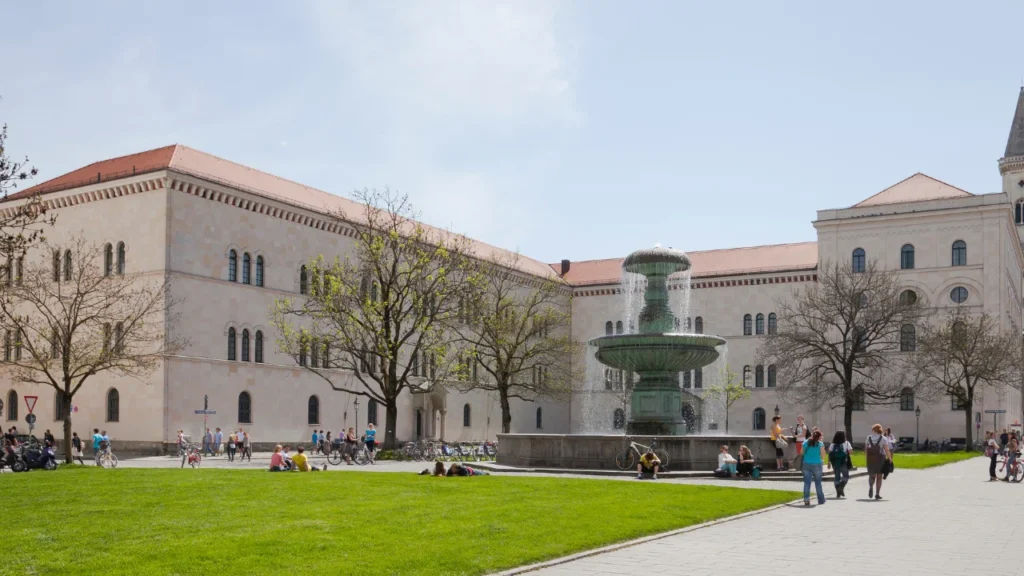
The University of Munich, officially named Ludwig Maximilian University (LMU), is a renowned public research institution in Munich, Bavaria, Germany.
Established in 1472, it stands as the sixth-oldest continuously operating university in Germany and is recognised as one of the most prestigious universities in Europe.
It ranked #54 in the QS World University Rankings 2024, #51 in the QS WUR Ranking By Subject 2024, #=255 QS Sustainability Ranking 2024, and #=6 Europe University Rankings-Western Europe 2024.
University of Freiburg

The University of Freiburg, situated in the picturesque city of Freiburg in Breisgau, Germany, is a well-known public research institution and a prime choice for students pursuing an MBBS degree.
It was ranked #192 in the QS World University Rankings 2024, #151-200 in the QS WUR Ranking By Subject 2024, #=94 in the QS Sustainability Ranking 2024, and #=31 in the Europe University Rankings- Western Europe 2024.
Humboldt University of Berlin

Humboldt University of Berlin (HU Berlin) is a prestigious public research institution in Berlin, Germany.
Established in 1809, it is one of Europe’s oldest and most esteemed universities. It is celebrated for its academic prowess, extensive history, and lively campus atmosphere.
It ranked #120 in the QS World University Rankings 2024, #145 in the QS WUR Ranking By Subject 2024, #=542 in the QS Sustainability Ranking 2024, and #=23 in Europe University Rankings-Western Europe 2024.
Poland

Poland provides a financially viable choice for pursuing MBBS studies, featuring tuition fees that are notably more affordable compared to other European nations.
Additionally, the country prioritises hands-on training and clinical experience. Among the leading medical universities in Poland are:
Medical University of Warsaw
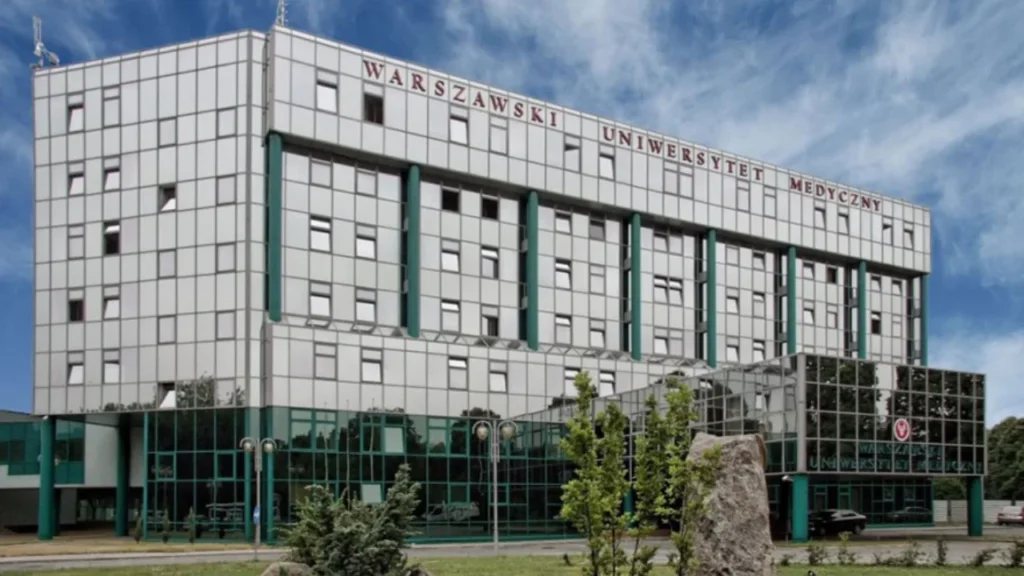
The Medical University of Warsaw (MUW) is a leading European institution for medical education. Located in Warsaw, Poland, it is renowned for its outstanding contributions to research, innovation, and student training.
It ranked #401-450 in the QS WUR Ranking By Subject 2024.
Jagiellonian University Medical College

The Jagiellonian University Medical College (JU MC), also recognised as the Collegium Medicum of the Jagiellonian University (CM UJ), stands for Poland’s oldest medical school and is prominent among European esteemed institutions.
It ranked #304 in the QS World University Rankings 2024, #251-300 in the QS WUR Ranking By Subject 2024, #=402 in the QS Sustainability Ranking 2024, and #3 in Europe University Rankings-Western Europe 2024.
Poznan University of Medical Sciences

Poznan University of Medical Sciences (PUMS) is a publicly funded medical university in the lively city of Poznan, Poland.
Since its inception in 1950, the institution has become a prominent centre for medical education and research in Central Europe.
It ranked #801-850 in the QS World University Rankings 2024, #101-150 in the QS WUR Ranking By Subject 2024, #1201+ QS Sustainability Ranking 2024, and #63 in Europe University Rankings-Western Europe 2024.
Silesian Medical University in Katowice

Situated in Katowice, Poland’s central hub, the Silesian Medical University (SUM) is a prominent academic institution celebrated for its exceptional medical education and research standards.
It ranked #1201-1400 in the QS World University Rankings 2024, #1001-1050 in the QS WUR Ranking By Subject 2024, #56 in the QS Sustainability Ranking 2024, and #=455 in the Europe University Rankings-Western Europe 2024.
Medical University of Lodz

Situated in Łódź, Poland, the Medical University of Lodz (MUL) is a distinguished institution that offers an extensive MBBS program for medical students.
Hungary

Hungary stands out as a sought-after choice for pursuing MBBS studies, boasting a rich history in medical education and an increasing array of English-language programs.
The nation places a significant focus on research and innovation, and among its leading medical universities are:
Semmelweis University

Situated in Budapest, Hungary, Semmelweis University is a prominent hub of higher education, particularly in medicine and healthcare sciences.
It ranked #201-250 in the QS WUR Ranking By Subject 2024.
University of Szeged
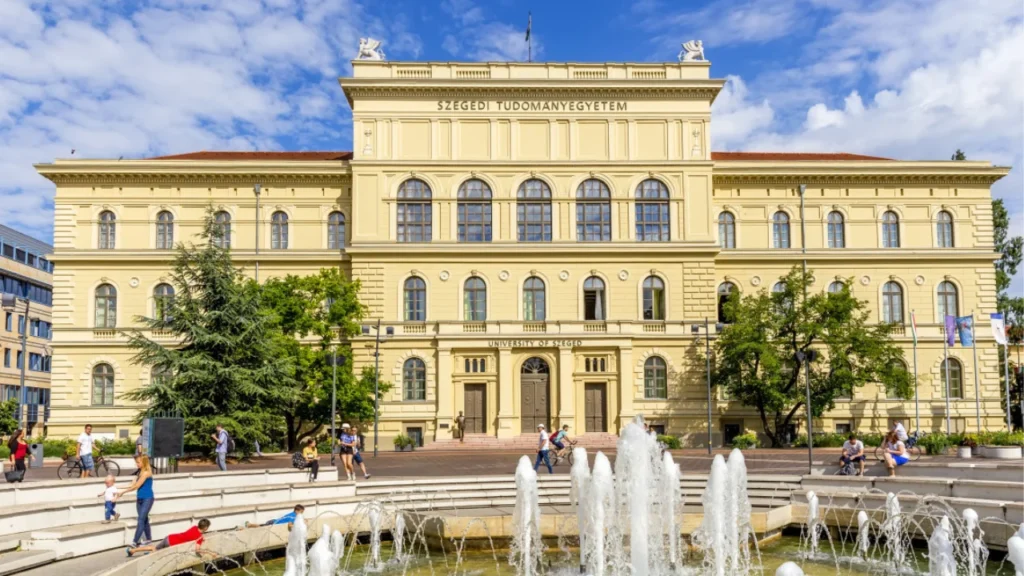
The University of Szeged, located in the picturesque city of Szeged, Hungary, is a prestigious institution that provides a comprehensive and globally recognised MBBS program.
It ranked #601-#610 in the QS World University Rankings 2024, #451-#500 in the QS WUR Ranking By Subject 2024, #=259 in the QS Sustainability Ranking 2024, and #11 in the Europe University Rankings- Western Europe 2024.
University of Debrecen

Situated in Debrecen, Hungary, the University of Debrecen (UD) is a dynamic public research institution with a proud legacy dating back to 1912.
It has consistently held a prominent position among Hungary’s top universities, earning acclaim for its medical program, particularly among international students.
It ranked #671-680 in the QS World University Rankings 2024, #351-400 in the QS WUR Ranking By Subject 2024, #=372 in the QS Sustainability Ranking 2024, and #14 in the Europe University Rankings-Western Europe 2024.
University of Pécs

The University of Pécs (PTE) is a public research institution in Pécs, Hungary.
PTE provides diverse undergraduate and graduate programs spanning medicine, law, business, humanities, and natural sciences.
Renowned for its excellence in education, research achievements, and global engagement, the university has established itself as a prominent academic institution.
It ranked #801-850 in the QS World University Rankings 2024, #401-450 in the QS WUR Ranking By Subject 2024, #=651 in the QS Sustainability Ranking 2024, and #151+ in the Europe University Rankings-Western Europe 2024.
Szent István University

Szent István University (SZIU) is a public research institution in Gödöllő, Hungary. It is recognized as one of the country’s largest and most esteemed universities.
SZIU provides extensive undergraduate and graduate programs spanning diverse fields such as medicine, veterinary medicine, agriculture, and economics.
Renowned for its excellence in education, research, and clinical services, the university maintains a distinguished reputation.
It was ranked #1001-1200 in the QS World University Rankings 2024, #901-920 in the QS WUR Ranking By Subject 2024, #33 in the QS Sustainability Ranking 2024, and #382 in the Europe University Rankings- Western Europe 2024.
Italy

Italy presents a distinctive combination of outstanding academic achievements, cultural abundance, and reasonable living expenses.
Additionally, the nation significantly focuses on preventive medicine and public health. Among the leading medical institutions in Italy are:
University of Milan

The University of Milan (UniMi), Università degli Studi di Milano, is a public research institution in Milan, Italy.
Founded in 1924, it is prominent among European universities acclaimed for its outstanding contributions to research, education, and healthcare.
It ranked #=481 in the QS World University Rankings 2024, #151-200 in the QS WUR Ranking By Subject 2024, #608 QS Sustainability Ranking 2024, and #38 in the Europe University Rankings-Western Europe 2024.
University of Padua

Situated in the charming city of Padua, Italy, it was established as one of Europe’s oldest and most esteemed universities.
This distinguished academic institution features an exceptional MBBS program, drawing in ambitious medical professionals worldwide.
It was ranked #219 in the QS World University Rankings 2024, #151-200 in the QS WUR Ranking By Subject 2024, #110 in the QS Sustainability Ranking 2024, and #8 in the Europe University Rankings- Western Europe 2024.
University of Rome Sapienza

Situated in the centre of Rome, Italy, the University of Rome Sapienza (Sapienza Università di Roma) renders it one of Europe’s oldest universities and the largest in Italy.
It was ranked #=134 in the QS World University Rankings 2024, #151-200 in the QS WUR Ranking By Subject 2024, #=205 in the QS Sustainability Ranking 2024, and #4 in the Europe University Rankings- Western Europe 2024.
University of Naples Federico II

Situated in the dynamic city of Naples, the University of Naples Federico II (UNINA) established itself as the oldest public university in Europe. UNINA is celebrated for its outstanding academic reputation and a broad spectrum of programs.
It ranked #335 in the QS World University Rankings 2024, #251-300 in the QS WUR Ranking By Subject 2024, #=537 in the QS Sustainability Ranking 2024, and #24 in the Europe University Rankings-Western Europe 2024.
University of Bologna

Situated in Bologna, Italy, it is a distinguished academic institution and a sought-after choice for students pursuing an MBBS degree in Europe.
It was ranked #154 in the QS World University Rankings 2024, #111 in the QS WUR Ranking By Subject 2024, #108 in the QS Sustainability Ranking 2024, and #7 in the Europe University Rankings- Western Europe 2024.
Georgia

Georgia is getting better quickly, especially in medical education. It has affordable fees and modern facilities and focuses on practical training.
Some of the best medical universities in Georgia include:
Ivane Javakhishvili Tbilisi State Medical University

Ivane Javakhishvili Tbilisi State University (TSU) is a public research university in Tbilisi, the capital of Georgia. Established in 1918, it is the oldest and largest university in the country, with over 20,000 students.
TSU offers undergraduate and graduate medical, law, business, humanities, and natural sciences programs. The university is renowned for its medical program, considered one of the finest in Georgia.
.It ranked #801-850 in the QS World University Rankings 2024, #390 in the Europe University Rankings 2024, #118 EECA University Ranking 2024, and #18 in the Europe University Rankings-Western Europe 2024.
David Tvildiani Medical University
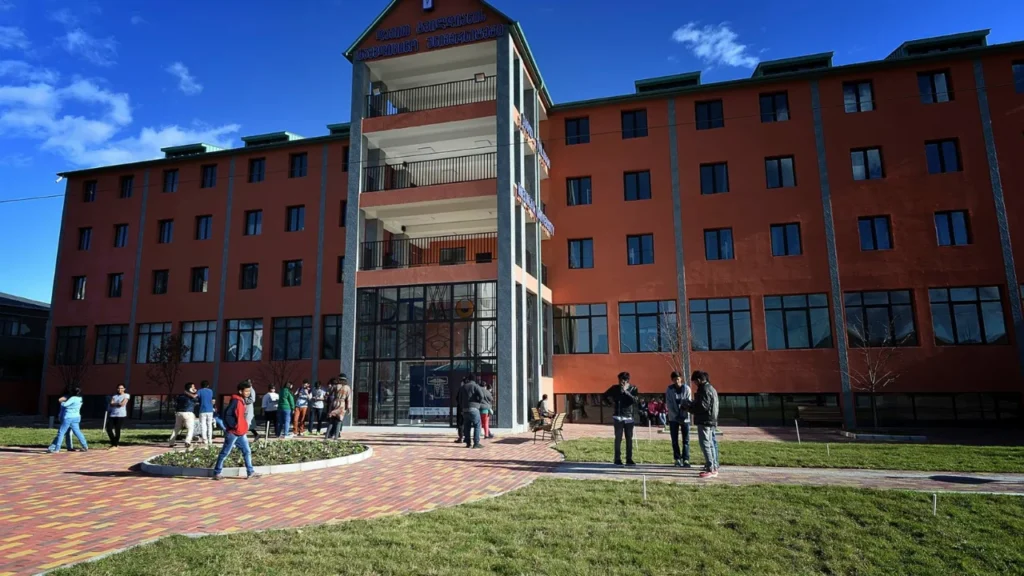
The David Tvildiani Medical University (DTMU) is a private medical university in Tbilisi, Georgia. Founded in 1989, it quickly became known for offering excellent education, modern facilities, and affordable tuition fees.
Akaki Tsereteli State University
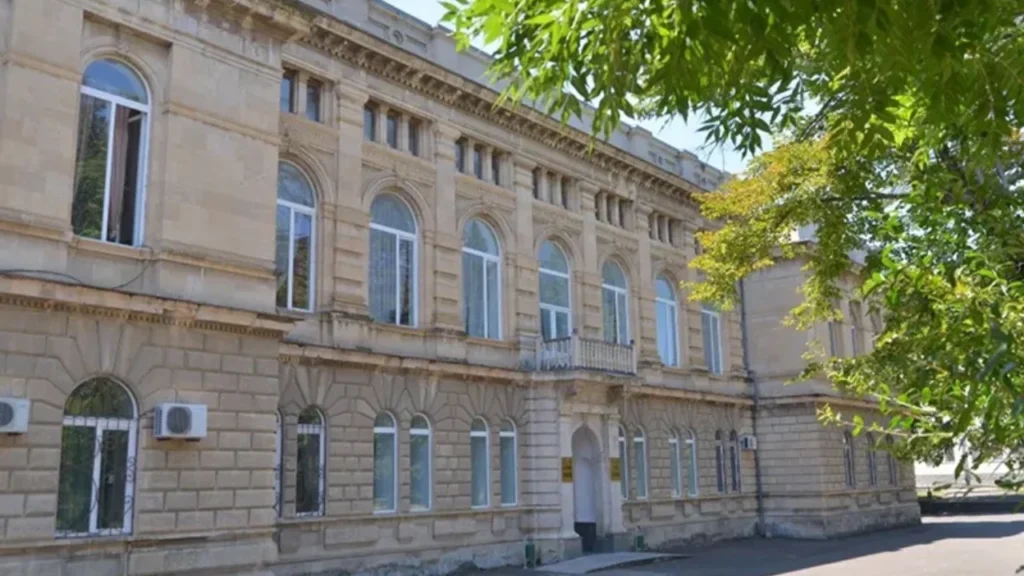
Akaki Tsereteli State University (ATSU) is a public research university in Kutaisi, Georgia. Established in 1930, it stands as one of the country’s oldest and most prominent universities, boasting an enrollment of over 15,000 students in diverse undergraduate and graduate programs.
It provides a 6-year MBBS program conducted in English. This program is recognised by India’s National Medical Council (NMC), enabling you to practice medicine in India upon meeting the required criteria.
Batumi Shota Rustaveli State University

Batumi Shota Rustaveli State University (BSU) is a public university in Batumi, Georgia. Established in 1923, it is named after the medieval Georgian poet Shota Rustaveli.
BSU provides various undergraduate and graduate programs, such as MBBS, MD, PhD, and postgraduate. The university is renowned for its excellent education, research, and clinical services.
Eligibility criteria to study MBBS in Europe
Educational Qualification:
Completion of secondary education (12th grade or equivalent) with strong grades in science subjects (physics, chemistry, biology).
The minimum percentage requirement varies between universities and countries but generally ranges between 50% and 60%.
Some universities may require specific subjects, such as mathematics, to be completed at the secondary level.
Entrance Exams:
While NEET (National Eligibility Entrance Test) is not mandatory for most MBBS programs in Europe, some universities prefer candidates with NEET scores as an additional indicator of academic ability.
Some universities may require specific entrance exams, such as the TMS (Test for Medical Studies) or the Aufnahmeprüfung für Medizinische Studiengänge (HAM-Nat).
Application Process:
Applications are typically submitted directly to the university through their online portal.
Required documents usually include transcripts, English language test scores (IELTS or TOEFL), recommendation letters, CV/resume, and personal statement.
Deadlines vary depending on the university, so checking their website for specific deadlines and application procedures is essential.
Visa Requirements:
Students need to apply for a student visa to study in Europe. Visa requirements vary depending on the country and individual circumstances.
Required documents may include a valid passport, proof of admission to the university, proof of financial support, and health insurance.
MBBS in Europe for Indian Students Fee Structure

Pursuing a medical degree in Europe may be a more economical alternative to other countries such as the United States or Australia.
The total expenses are subject to variation based on various factors, including:
- Tuition Fees:
- Significant variation: Tuition fees for European MBBS programs vary significantly depending on the university, country, and program duration.
- Range: Generally, fees range from €2966 to €5562 per year. The minimum payment is €2,688 per year, and the maximum fees can go up to $9,000 annually.
- Accommodation
- The hostel fee is $200-$260 per month, or it can go up to €400 to €800 per month.
- City and type dependent: Housing costs in Europe differ greatly depending on the city and type of accommodation chosen.
- Options: Shared apartments or student residences are generally the most affordable options.
- Living Expenses:
- These include food, transportation, utilities, clothing, and other personal expenses.
- Costs vary depending on individual lifestyle and spending habits.
- An additional €500 to €1,000 per month is a good starting point for living expenses.
- Scholarships and Financial Aid:
- Some European universities offer scholarships and financial aid specifically for international medical students.
- These scholarships can significantly reduce tuition and living expenses.
- Research individual universities and external funding opportunities, as eligibility criteria and availability vary.
Estimated Total Cost:
6-year program: For a rough estimate, consider the following ranges for a 6-year MBBS program:
Tuition fees: €18,000 – €90,000
Accommodation: €28,800 – €57,600
Living expenses: €36,000 – €72,000
Total cost: An estimated total cost of €82,800 – €219,600.
Note: This is just an estimated range. Depending on individual choices and circumstances, the actual cost may be higher or lower.
Recognition of MBBS Degrees in Europe and India
Recognition from National Medical Authorities:
In Europe, medical qualifications are standardised by the European Union (EU) through Directive 2005/36/EC. This directive acknowledges MBBS degrees granted by universities in the World Directory of Medical Schools (WDMS) published by the World Health Organization (WHO).
In India, the National Medical Commission (NMC) acknowledges MBBS degrees from universities listed in the WDMS, contingent on the university meeting the NMC’s established minimum standards.
Registration Requirements for Practicing Medicine:
Europe: Each EU member state has its registration process for practising medicine. Generally, graduates need to pass a national licensing exam and complete a period of supervised practice.
India: Indian graduates must register with the NMC by passing the Foreign Medical Graduates Examination (FMGE) and completing a one-year internship in India.
International Recognition:
NMC: Obtaining recognition from the National Medical Council (NMC) enables Indian graduates to practice medicine in India after completing the necessary registration procedures.
WHO: Recognition by the World Health Organization (WHO) through the World Directory of Medical Schools (WDMS) signifies that the medical degree is globally acknowledged.
ECFMG: Certification from the Educational Commission for Foreign Medical Graduates (ECFMG) is a prerequisite for Indian graduates to practice medicine in the United States.
FAIMER: The Foundation for Advancement of International Medical Education and Research (FAIMER) offers an online directory featuring accredited medical schools worldwide.
WFME: Accreditation from the World Federation for Medical Education (WFME) indicates that the medical school meets international standards for medical education.
Career prospects after MBBS in Europe

Acquiring an MBBS degree in Europe unlocks diverse and promising career paths:
Medical Practice in Europe:
- Graduates holding an EU-recognized MBBS degree can seek medical licenses in most European countries by completing requisite registration and licensing exams.
- Europe offers a spectrum of healthcare systems and practice settings, enabling you to align your career with personal interests and skills.
- Healthcare professionals in Europe typically enjoy competitive salaries, favourable working conditions, and comprehensive benefits.
Returning to India for Further Studies or Practice:
- With NMC recognition, graduates can return to India, pursue specialisation, or practice medicine after obtaining FMGE clearance and completing a one-year internship.
- India’s expanding healthcare sector creates a high demand for qualified medical professionals.
- Returning graduates bring valuable knowledge from European education, potentially enhancing healthcare delivery in India.
Research or Specialization in Medicine:
- European universities provide robust research chances for MBBS graduates to contribute to cutting-edge medical research.
- Europe offers diverse specialisation programs in various medical fields, allowing the pursuit of specific interests and expertise.
- Research and specialisation in Europe enhance professional profiles, opening doors to international career opportunities.
Additional Considerations:
- Proficiency in the local language can boost your career prospects in Europe.
- Building professional networks facilitates connections with potential employers and colleagues in your chosen field.
- Continuous updating of knowledge and skills through professional development programs ensures competitiveness and career advancement.
In conclusion, pursuing an MBBS degree in Europe establishes a solid foundation and offers access to various fulfilling medical career opportunities.
Tips for Choosing the Right Medical University in Europe
Selecting the appropriate medical university in Europe constitutes a pivotal decision that can profoundly influence your future as a medical professional.
Here are some guidelines to assist you in making a well-informed choice:
Evaluate your academic interests and career objectives:
- Specialization: Identify a specific medical field, such as paediatrics or cardiology, and opt for a university renowned for its programs in that area.
- Research opportunities: If you aspire to research alongside your studies, look for universities with robust research programs and ample funding opportunities.
- Career aspirations: Consider whether you plan to practice medicine in Europe or return to India, considering the university’s recognition and reputation in your desired location.
Research about the reputation and accreditation of the university:
- Rankings: Consult international rankings like QS World University Rankings and Times Higher Education World University Rankings to assess the university’s academic standing.
- Accreditation: Ensure the university holds accreditation from a recognised medical education authority, such as the European Union of Medical Specialists (UEMS) or the NMC in India.
- Faculty: You should examine the qualifications and experience of faculty members, focusing on their expertise in your field of interest.
Compare tuition fees and living expenses:
- Tuition fees: Given the varying tuition fees across European universities, compare costs and explore scholarship options before finalising your decision.
- Living expenses: Research the cost of living in different cities where universities are situated, considering factors like accommodation, food, and transportation.
- Financial aid: Explore scholarships for international students to alleviate financial burdens.
Language requirements and the admission process:
- Language tests: Most European universities mandate proficiency in English or the local language. Familiarise yourself with specific requirements and prepare for any necessary tests.
- Admissions criteria: Learn about the university’s admission process, including application deadlines, required documents, and selection criteria.
- Visa requirements: As an Indian student, you must apply for a student visa and comprehend your chosen country’s visa process and timeline.
Remember, selecting the right medical university is a critical decision. Take your time, conduct thorough research, and consider all factors before making a final choice.
Conclusion
Pursuing an MBBS in Europe presents an opportunity for Indian students facing challenges in accessing medical education.
Key takeaways:
- High-quality education
- Global Recognition
- Affordable tuition fees
- Diverse cultural exposure
- Modern infrastructure
Considering MBBS in Europe becomes a feasible choice, offering a way to fulfil the medical profession and an opportunity for personal and professional development.





























27 Responses
Точно трендовые новости мировых подиумов.
Актуальные новости самых влиятельных подуимов.
Модные дома, бренды, высокая мода.
Самое лучшее место для модных хайпбистов.
https://breakmoda.ru/
Самые актуальные новинки мировых подиумов.
Все мероприятия известнейших подуимов.
Модные дома, торговые марки, гедонизм.
Самое лучшее место для модных людей.
https://malemoda.ru/
Абсолютно свежие новинки мировых подиумов.
Абсолютно все эвенты лучших подуимов.
Модные дома, торговые марки, высокая мода.
Свежее место для стильныех людей.
https://fashionvipclub.ru/
Полностью свежие события мировых подиумов.
Все события известнейших подуимов.
Модные дома, бренды, гедонизм.
Лучшее место для модных людей.
https://sneakero.ru/
Самые трендовые новости мира fashion.
Все мероприятия лучших подуимов.
Модные дома, бренды, haute couture.
Интересное место для трендовых людей.
https://sneakerside.ru/
Наиболее актуальные события подиума.
Абсолютно все мероприятия всемирных подуимов.
Модные дома, лейблы, высокая мода.
Свежее место для стильныех людей.
https://sneakersgo.ru/
All horlogerie news and events. New collections, models. Up to date news about old watch companies.
https://chrono.luxepodium.com/
Все трендовые события мира часов – свежие коллекции известных часовых марок.
Точно все модели часов от бюджетных до супер люксовых.
https://watchco.ru/
Абсолютно все актуальные события часового искусства – свежие коллекции легендарных часовых марок.
Абсолютно все варианты часов от недорогих до ультра гедонистических.
https://bitwatch.ru/
Очень важные события мировых подиумов.
Абсолютно все события известнейших подуимов.
Модные дома, торговые марки, высокая мода.
Новое место для модных людей.
https://egomoda.ru/
Несомненно свежие новинки модного мира.
Абсолютно все эвенты всемирных подуимов.
Модные дома, торговые марки, гедонизм.
Самое лучшее место для модных хайпбистов.
https://whitesneaker.ru/
Абсолютно актуальные новости мира fashion.
Важные мероприятия лучших подуимов.
Модные дома, бренды, haute couture.
Новое место для трендовых хайпбистов.
https://urban-moda.ru/
Thank you for your sharing. I am worried that I lack creative ideas. It is your article that makes me full of hope. Thank you. But, I have a question, can you help me?
Самые актуальные события модного мира.
Исчерпывающие эвенты мировых подуимов.
Модные дома, торговые марки, высокая мода.
Свежее место для модных хайпбистов.
https://worldsfashion.ru/
Can you be more specific about the content of your article? After reading it, I still have some doubts. Hope you can help me.
Thanks for sharing. I read many of your blog posts, cool, your blog is very good.
Наиболее стильные новости индустрии.
Все мероприятия известнейших подуимов.
Модные дома, торговые марки, гедонизм.
Лучшее место для стильныех людей.
https://qrmoda.ru/fashion/361-manzoni-24-italyanskiy-mehovoy-shik/
Точно актуальные новинки индустрии.
Абсолютно все события самых влиятельных подуимов.
Модные дома, бренды, гедонизм.
Интересное место для трендовых хайпбистов.
https://stylecross.ru/read/2024-06-19-lacoste-kachestvennyy-premium-po-tsene-mass-marketa/
Несомненно трендовые новинки подиума.
Абсолютно все события известнейших подуимов.
Модные дома, бренды, высокая мода.
Свежее место для стильныех людей.
https://world.lepodium.net/
Полностью стильные новости модного мира.
Абсолютно все события известнейших подуимов.
Модные дома, лейблы, высокая мода.
Приятное место для модных хайпбистов.
https://rftimes.ru/news/2024-08-14-7-samyh-kultovyh-veshchey-ot-balenciaga
Наиболее свежие события мира fashion.
Все события известнейших подуимов.
Модные дома, бренды, haute couture.
Самое приятное место для модных хайпбистов.
https://hypebeasts.ru/stuff/2024-08-18-demna-gvasaliya-ikona-sovremennoy-mody/
Thank you for your sharing. I am worried that I lack creative ideas. It is your article that makes me full of hope. Thank you. But, I have a question, can you help me?
Sure, we will be happy to assist you. Please reach out to us on this number: +91-8800880285
Thanks for sharing. I read many of your blog posts, cool, your blog is very good.
Your article helped me a lot, is there any more related content? Thanks!
Your point of view caught my eye and was very interesting. Thanks. I have a question for you.
Your point of view caught my eye and was very interesting. Thanks. I have a question for you.